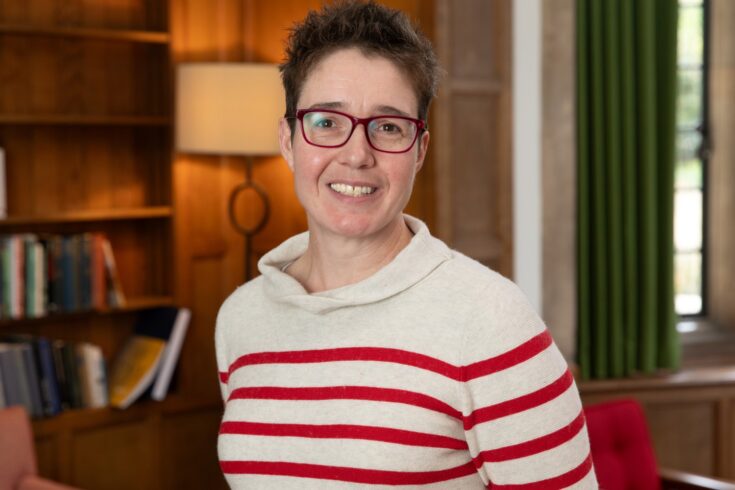Professor Deane MBE is currently Professor of Structural Bioinformatics at the University of Oxford and Chief AI Officer at Exscientia plc. She is also a co-director of the Systems Approaches to Biomedical Research Centre for Doctoral Training, which she founded in 2009.
During the COVID-19 pandemic, Professor Deane served on SAGE, the UK government’s Scientific Advisory Group for Emergencies.
Leading EPSRC
Her appointment to the Engineering and Physical Sciences Research Council (EPSRC) marks her return to UK Research and Innovation (UKRI). When Deputy Executive Chair of EPSRC she acted as UKRI’s COVID-19 Response Director.
She was appointed Member of the Order of the British Empire (MBE) in the 2022 Birthday Honours for services to COVID-19 research.
Professor Deane succeeds Professor Miles Padgett who has been EPSRC’s Interim Executive Chair.
Bringing a wealth of experience
UKRI Chief Executive Professor Dame Ottoline Leyser said:
I am delighted to welcome Professor Charlotte Deane as EPSRC’s new Executive Chair. Charlotte is returning to UKRI, having played a key role during our response to COVID-19 as EPSRC’s Deputy Executive Chair. She brings with her a wealth of experience and an impressive track record as a leader in both academia and business.
She will take on the leadership of EPSRC at a critical and exciting time, with the transformative potential for our economy, public services and society from new technologies such as AI and Quantum. As a core part of UKRI, EPSRC ‘s strategic investments can shorten the distance between discovery and prosperity, capturing the benefits for today, while catalysing the discoveries of tomorrow.
I would like to take this opportunity to thank Professor Miles Padgett for his superb leadership of EPSRC as its interim Executive Chair over the past six months.
Driving pioneering research
Science and Technology Secretary, Michelle Donelan, said:
Professor Deane’s return to the Council as its Executive Chair is excellent news for the sector, bringing a strong record in driving pioneering research in business and academia and having spearheaded UKRI’s Covid response at a vital time for the UK.
From digital technologies to clean energy, manufacturing to mathematics, advanced materials to chemistry, EPSRC-led discoveries impact on all our lives and I look forward to working with Professor Deane to take forward the innovation that benefits the whole country.
Building a vibrant research system
EPSRC is the main funding body for engineering and physical sciences research in the UK. It invests in research that underpins and advances all areas of science ranging from artificial intelligence (AI) and quantum to clean energy, manufacturing to mathematics, advanced materials to chemistry.
EPSRC’s discovery science brings value to the UK through new technologies and products for consumers. It also supports world-leading research and skills to advance knowledge and deliver a sustainable, resilient and prosperous UK.
Investing in world-leading research
Professor Deane said:
I am excited to be chosen as Executive Chair of the Engineering and Physical Sciences Research Council (EPSRC).
The opportunities for EPSRC research have never been greater from machine learning methodologies which touch practically every aspect of the economy and society, to quantum computing and advanced materials to the growing understanding of the importance of EPS techniques for solving challenges from climate change to future pandemics.
It will be a real privilege to lead the EPSRC at such an important time and I look forward to working with colleagues in UKRI and across the sector to help to build a more vibrant and powerful UK research and innovation system.
Professor Deane is expected to take up the role in January 2024.
The post of Executive Chair of EPSRC is subject to pre-appointment scrutiny by the House of Commons Science, Innovation and Technology Select Committee. The committee have reviewed details provided by Professor Deane and decided they do not require a pre-appointment hearing for this appointment.

